#he loves her but he pushed her aside for his savior obsession and his actions still hurt her and the people around him
Explore tagged Tumblr posts
Text
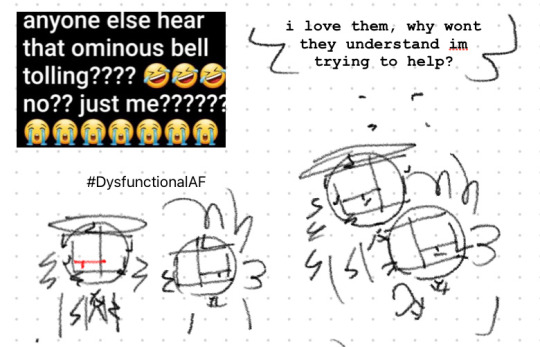
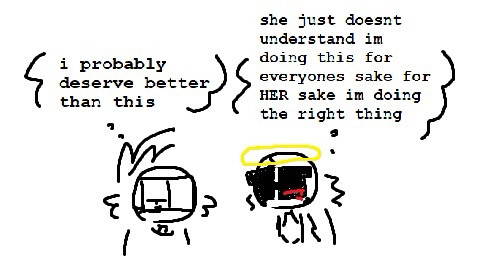
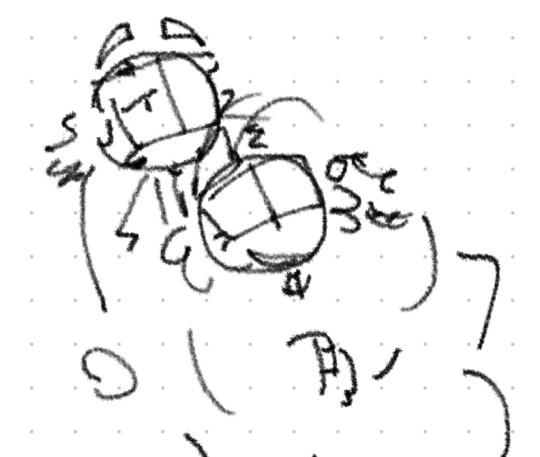

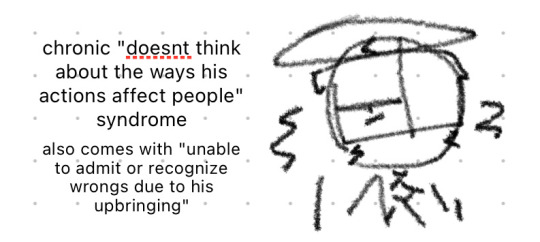
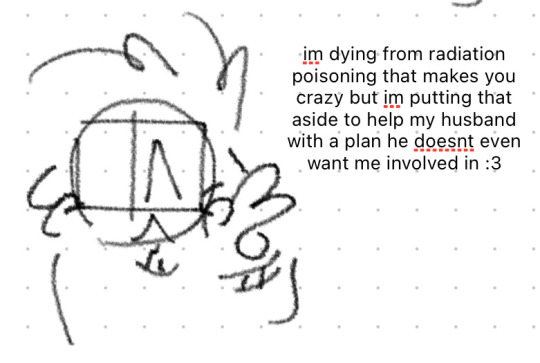

marriage counselors HATE THEM!
#woe unhealthy canon-compliant postfall christnarr be upon ye#madness combat#madcom#jebediah christoff#dr. hofnarr#christnarr#marrowart#obligatory mention that obviously jeb is in the wrong here. do i even need to say that#this is in the context of the plan + the fall#he loves her but he pushed her aside for his savior obsession and his actions still hurt her and the people around him#hofnarrs smart enough to realize jeb cant be reasoned with but against her better judgement she Cares#who wouldnt theyve known eachother for 15 years#anyways tldr they just crumble postfall because jeb goes through a mental spiral and becomes bent on the savior thing#hofnarr is hurt but unfortunately (with the state their relationship is in at the time) not surprised#jeb was conditioned into believing he was destined to save the world#so finding out he failed#and only (unwillingly) contributed to causing harm#of course hw would take it into his own hands and push aside everything else#this combined with that need to be perfect. the idea that he must not make mistakes instilled into him#(as working under the nexus usually entailed)#and because of this in an attempt to 'fix' things he hurts people in the process!#and doesnt even notice or admit his doing so#even outright refusing to accept failure in multiple instances#whatever. christnarr miserable i love them 🫶
17 notes
·
View notes
Text
@floralflowerpower mentioned wanting to read an idea I had, soooo....
Alright, this is largely inspired by the M*A*S*H episode “Who Knew?” It’s a very bittersweet episode. It begins with the news that a nurse died the previous night when she wandered into a minefield. One of the main characters, Hawkeye, was the last one to see her alive. He offers to write her eulogy when no one else steps forward, though he barely knew her himself. He’s stymied by how little anyone can tell him about her, until the priest suggests he reads her diary. He learns who she was through her own words, the person she had hidden beneath a shy exterior that others interpreted as standoffish. She had true feelings for Hawkeye and he never knew. The last entry is how she can’t get Hawkeye out of her thoughts so she’s going to go for a walk.
As you might guess, my idea starts off with a bittersweet tale.
Jack and Maddie got the portal working without Danny needing to die, and for two years, Amity Park has been under threat from whatever ghost chooses to try their hand at conquering them. Jack and Maddie are the town’s main defense without Danny Phantom to protect them, and they’re not as skilled or as prompt as canon Danny was at catching ghosts. Sometimes a ghost slips through. Sometimes, people get hurt.
I don’t have the full details worked out, but in this case, a ghost attacked the school. Danny is almost killed. He’s the son of the town’s defenders, so perhaps he’s an easy, desirable target. One of his classmates saves him by sacrificing himself. He (I’ve been going with the name Alexander in my notes) later dies at the hospital, and Danny, suffering from survivor’s guilt and PTSD, blames himself. He didn’t know his classmate very well, he doesn’t even remember his name right away, he doesn’t understand why Alex saved him.
He tries to find out more about him, feeling like he owes him that much, but he discovers only superficial information. Alex was a foster of Amity Park; he had no family. No one but Danny is currently mourning him. He’s determined to get answers, though, and that causes him to clash with Dash and teachers when they say things like “Alex was a creep” or “he was a troublemaker; I heard he ran away from his last home.” Danny’s fights get him brought to Lancer’s attention, and it’s during that meeting that Danny is given Alex’s diary.
Eager but frightened, it takes Danny a long time to work up the courage to begin reading.
Meanwhile, “Phantom” begins to form in the Ghost Zone.
Alex hated himself enough that his self-image is dismissed from his spirit, and his last thoughts were of Danny, so when he forms, he takes on a ghostly impression of Danny. It’s an important detail because that’s what makes this pitch pearl, and it’s why Danny doesn’t recognize him.
He doesn’t have a clearly defined obsession, but he definitely feels a pull toward the human world. Johnny and Kitty help Phantom cross the portal, and that’s when he meets Danny for the first time. Idk why Danny came down to the lab yet, but I know he’s up because of PTSD nightmares/insomnia. Phantom feels his whole being focus on Danny, Danny freezes in place because he had just woken up from a nightmare of a ghost attack, and Johnny and Kitty look between Danny and Phantom, putting two and two together and reaching “Phantom’s purpose”
The three ghosts make a quick escape once protective parents Jack and Maddie come storming down the stairs, but first impressions were made, and now Phantom is determined to find out more about Danny and why his soul is crying out for him.
Unfortunately, Danny is entangled in Alex’s diary and his own grief. Every effort Phantom makes toward befriending Danny is rebuffed because 1) ghosts can’t be trusted, and 2) Phantom’s resemblance to Danny combined with his interest in him is fucking creepy. In his downward spiral, though, Danny is losing connection with his friends, his grades, his safety, and Phantom isn’t willing to let Danny fade like this. Circumstances change when Phantom saves Danny from a human threat (human crime, let’s goooo) and Danny starts to actually pay attention to him, enough to start letting down his walls at least.
And just in time for Danny to reach the point in the diary where Alex confesses he had a crush on Danny. Danny’s grief finally breaks, and Phantom comforts him through the loss. Phantom learns about Alex and Danny’s growing feelings for a boy that’s no longer within reach, and reluctantly pushes his own growing feelings for Danny aside. Danny is going through too much to deal with Phantom’s own failings. He needs time to mourn.
A real friendship starts to build.
With his feelings for Danny on hold but satisfied by their friendship, Phantom begins to explore who he is. He begins to take on a protector role, determined to save other humans from feeling the grief Danny is under. He focuses less on fighting and more on saving. A ghost will attack, and he’ll erect a shield around humans to deflect debris or catch someone who is falling or just comfort someone who got hurt. Jack and Maddie are still the ones that ultimately defeat the ghost, but Phantom’s actions begin to catch everyone’s attention.
He is exactly what they needed, and he begins to be hailed as a guardian.
Danny is happy for him, but something about Phantom’s focus with protection over fighting resonates with Alex’s thoughts in his diary. He begins piecing things together. He proposes his wild idea to Jazz one night, but she warns him not to try to “bring Alex back from the dead” for Danny’s own mental health.
Danny proposes the idea to Phantom, and at first Phantom thinks it’s nonsense, but Danny insists Phantom read the diary, so Phantom reluctantly (tho he doesn’t understand why he’s so reluctant) humors him. He can only get through five entries before he shoves the diary back into Danny’s hands and refuses to read anymore.
His self-hatred caused him to lose his identity in death, remember? He doesn’t want to remember, it’s painful. He tells Danny to forget about Alex. No one cared about him when he was alive, they won’t care who he was now. But Danny cares, and it tugs at Phantom’s feelings to meet Danny halfway, but does Danny like him because of Alex or because of Phantom, the person he is now?
I don’t have the full details worked out, but I know I want Danny to reveal Phantom’s past as Alex to Amity Park so that they can see their foster son has grown into their defender, savior, protector. He wasn’t loved when he was alive, but they must honor his past because it made him the hero he is now. Amity Park goes wild for the story. They love Phantom all the more, knowing who he was, how he died, and who he became.
A bittersweet beginning becoming an uplifting, hopeful note, maybe?
That’s all I have planned :P
I haven’t written anything for it yet because I haven’t figured out how to start. I’m terrible at action scenes, and I feel like I have to describe at least PART of Alex’s sacrifice. But ugh, ghost attack, ugh. Choreography, description, pacing, urgh, I hate action scenes, how do you guys WRITE those, it’s witchcraft I swear
(Side note for the name, Alexander means “defender of men”)
(And because I’m classy as a unripe grape, the story is titled Right Here (Departed) in my folder, which is actually a song by Brandy oiasjdlkfej I song titled it. omg. But listen, listen...it fits)
158 notes
·
View notes
Text
OKAY i wanna review “it ends with us” so here it is, under the cut because there are spoilers
Firstly, I really appreciate this story not being what Colleen Hoover COULD have made it. I appreciate that there was a good guy and a bad guy but also a good bad guy and bad good guy.
I want to preface this review by saying that in class today, we talked about how trauma changes us biologically and that’s how it’s transferred from generation through generation. It’s a coincidence that I learned about that today because of how this story unfolded. I think the most important part of this story, aside from Atlas who has my heart, is the trauma that’s passed down from Lily’s mom to her. There’s a direct link there, but it also makes me wonder if Ryle has had some sort of intergenerational trauma passed down to him. I would have assumed religious trauma haha
But to me, Ryle has severe obsessive tendencies. He was on his knees before Lily within the third time he’d seen her! I want to know what previous relationship failures he’s had. I want to know why he is the way that he is, because clearly, Hoover shows that there’s more to Ryle than his anger.
I have mixed feelings about Ryle being in Lily’s life. I get that Hoover’s dad was a good dad, though not a good husband, but I also feel like a child should know the relationship between its mom and dad when it grows older. So what are Ryle and Lily going to say to Emerson? I feel like Ryle should have been distant from Lily and Emerson for more than a few weeks. I wish we got an insight into the therapy Ryle goes to.
That being said, we already know a lot about Ryle and Lily individually. We know about Lily’s parents. WHAT ABOUT ATLAS???
I love Atlas. I love that he wasn’t written as the savior. I want more from Atlas. I want to know what he thought about in the past 9 years. I want to know what he did in his free time, if he ever looked her up on social media, if he ever thought about walking back on his actions to try to seek Lily out. I feel like there’s SO MUCH to talk about with Atlas. I want an Atlas book. And I want it right now.
I did like how Lily kept pushing Ryle away. I also liked how she had a moment of weakness. I liked how Atlas said that she was acting like her mother. I liked how Atlas didn’t give up on his own dreams. I liked how Atlas was both happy and sad about her happiness. I liked how it was always implied that Lily kept him with her. I liked how Lily and her mother made up.
Again, not sure how I feel about Ryle being present in Lily’s life even after 3 times that he physically hurt her. Intention or not. Intoxicated or not. But I think that Hoover did this because WE aren’t in Lily’s shoes so we’re not expected to understand. Maybe it’s for the same reasons that married couples who argue a lot stay together: for the kids. It’s weird and it makes me uncomfortable, but I think that was the intention.
SO! 5 stars from me. Would recommend. Maybe I did get triggered a few times because of my own family issues, BUT that’s a discussion for a different time.
Also, I didn’t cry during the book, but I cried at the author’s note. Thanks for that Colleen.
41 notes
·
View notes
Text
Eren Meta From 139
Many people believe chapter 139 butchered Eren's character because of this scene.

Because out of nowhere, Eren's motivation is to reach Mikasa's choice to satisfy Ymir's wish; thus, everything he said from the beginning about his motivation is all lies or meaningless.
No. And I'm no writing this to justify or condemn him. This post is more for myself, because I'm trying to understand his character.
Now let's see at his words. "All of it, was to arrive at that result. That's why I moved forward." What does he mean by it? Which actions?
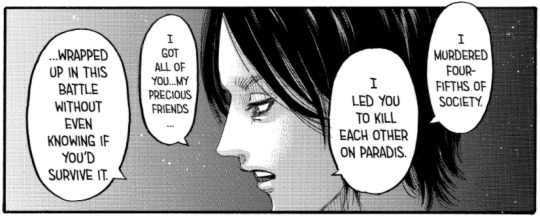
This.
All the events, starting from ch 123-139, are going according to Ymir's wish.
Right after Eren told her to decide for herself.
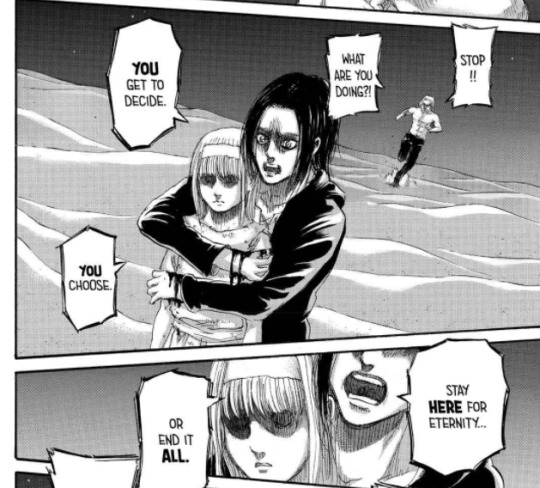
She wants to end the world, at least 80% of it. She wants to push Eren's friends to stop him, even if they have to betray their nation. The Battle of Heaven and Earth, all of the clusterfucks in chapter 135-138 happens because it's Ymir's will to push Mikasa to make a choice. She chooses to end the titan curse after she gets to see what she wants.
Ymir did all of this, she watched all the events that unfold because Eren released her.
Then, what about Eren's will?
This is why I'm okay with the idea of Eren following Ymir; Eren doesn't have a reason to reject Ymir's wish because he got what he wants. He got the future he saw on the medal ceremony, the eradication of titans. He got the "freedom" to flatten the earth, and if his gamble paid off, he'd get his friends' safety; because they will become the world's savior after they stop him. It's a win-win situation, thus, putting him in a position where he becomes Ymir's ally and stands by her side.
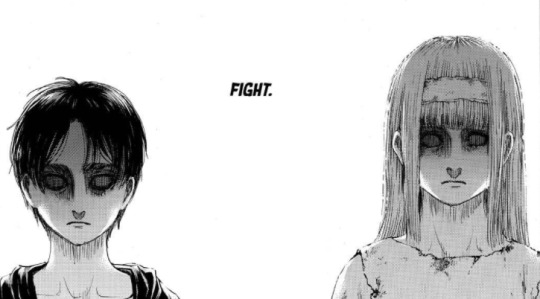
The reason why Ymir chose Mikasa is not clear, but Eren had a hunch and it's something he could relate to; another reason for him to not object to Ymir's wish. It has something to do with that day when Mikasa practically confessed her love for him, the day where he could use the Founder's power for the first time. I leave this scene up to your interpretation.
What about Eren's will from before 123? What did he try so hard to achieve?
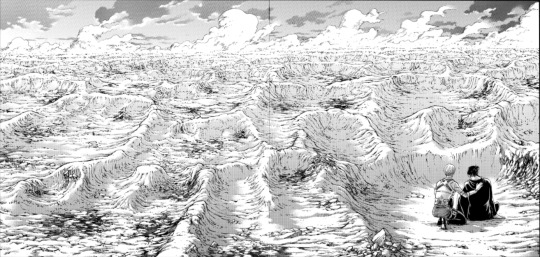
This scenery. Aside from the eradication of titans.
Here's the thing. Doesn't matter if fate favors you or not, you have to work hard to get what you want. To work hard, you need to know the reason. I take Isayama's artistic choice that the future memories he saw are fragments without context; he doesn't know why it happens the way it would. So, even if he saw the scenery, even if he saw the eradication of titans, why he has to go to hell first? Why he has to go through all of the suffering? Why he has to keep moving forward? He doesn't have to; but the world, destiny or whatever keeps feeding him reasons to move forward, until he reached a conclusion that the titan world is fucked up system and has been going for far too long. For Eren, this needs to end, and he wants to reach that scenery no matter what.
This is the man who saw how unforgiving the outside world is. The fact that a little girl got eaten by dogs just because she's an Eldia is proof that a subject of Ymir can never gain freedom, can never gain the privilege of human rights the way a normal human does. (I suggest you to read Gross' monologue from ch 87). The man saw how the world keeps pushing Paradis to be the source of evil without listening to what the other parties have to say. The man is manipulated to euthanize his own people as if Eldia doesn't deserve to be born. He saw the fucked up history of titans from 2000 years ago. He was so disappointed the world is not like in Armin's book, it's not like his ideal world. So he wants to wipe it away. He wants to bury the history and the civilization that created it, deep to the ground. He wants to destroy every last one of those animals, that's on this earth; titans or humans alike. He wants to leave the surface a blank plain. This is his ideal world, his freedom.
Eren said it himself. Even if he didn't know that his friends would stop him; even if it's not Ymir's will, he'd still trample the earth. To me, the reason why Eren commit genocide, the reason he said to Armin is no different than the reason he said to Zeke.


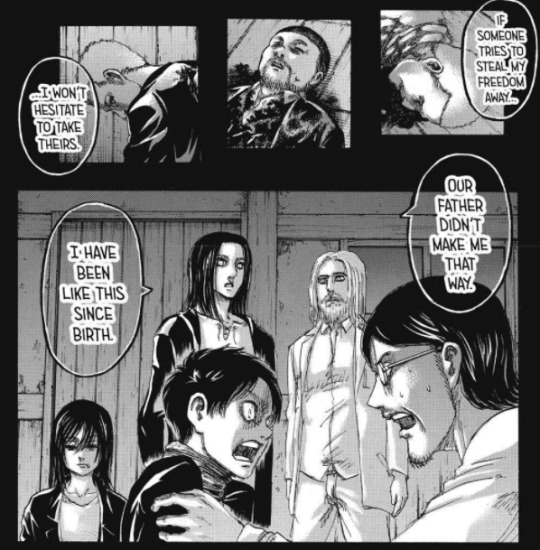
It's just the way he is ever since he was born.
A freedom seeker.
The wording is different with the receiver. With Zeke, it's different, because he's trying to make a point that this is who he is. But with Armin? He is going to die, with his best friend as his judge. He knew exactly why he wanted it: because he is free, ever since he was born. But somehow he couldn't say it outright with confidence. Maybe he's afraid to be judged as a monster by the person closest to him, or maybe he started to question his definition of freedom. Because to me, his eyes look like wonders.
Now. What is freedom? Many people believe that any acts out of violence is not freedom. But to Eren, that is freedom, his freedom. There's a meta that perfectly explains Eren's version of freedom, up until he did the rumbling. This is my highlight from that meta:
So freedom is the power of the individual to do as one wants. When you do something, you are imposing your internal desires onto the external world. If freedom is thus the power to impose your individual Will onto the outside world, then whoever has more power has more freedom.
This concept was highlighted when he told his friends in Paths that he's free to destroy the world and they're free to defend it; meaning that they're bound to clash, and they have to fight.
Freedom is not good. Nor is it bad. It is a force beyond good and evil, and that is precisely why it is terrifying. This, I believe, is why so many baulk at the idea that such a ruthless manipulator could be the avatar of freedom in this story. What I have always loved about SNK is how it delves ever deeper into its themes as the story goes on and discovers such fundamental paradoxes that your understanding of the idea is changed forever. If this is the horrifying face of freedom, perhaps we should not be free.
I don't know how much Isayama's involvement in this, but Grisha's commentary from the Lost Girls captures this concept perfectly.
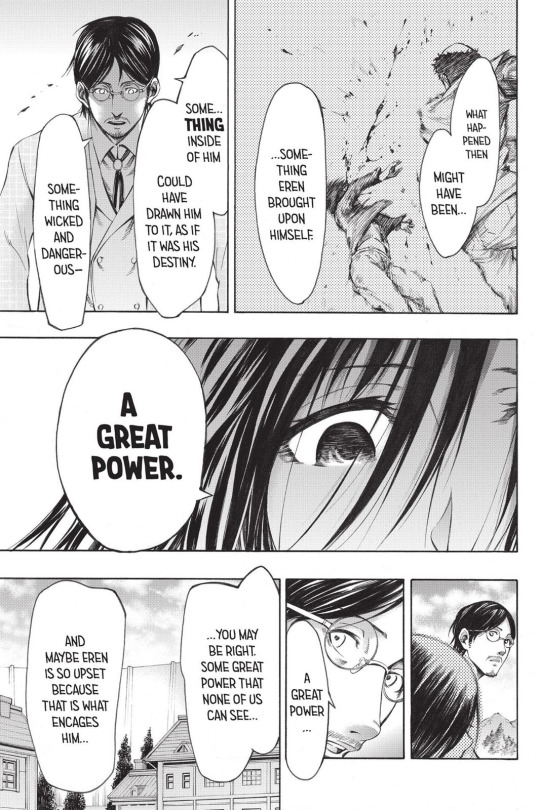
For Eren, that "great power" is his own concept of freedom: A world without oppression. Doing what you want to do. He's free to protect his homeland by whatever necessary, whatever cost, and leave the rest of the world as an open plain.
Usually, the more we're obsessed with something, the more we stray from our humanity. After witnessing firsthand the vision-he-so-called-freedom, he doesn't know how to feel. He gets what he wants, but he's not happy at all, only the hollow scenery remains.
Eren realized how messed up he is, even before he did this. He tried to reach out to Mikasa that night after he saved Ramzi, to save his humanity left. It's one of the reasons why he asked her, "what is he to her?" Surely if he was loved –even after he killed those men when he saved her that day– would mean he's still human, right? And by running away with her, he could live in peace, maybe he could free himself from his obsession. But he's doing it so half-heartedly, that when everyone interrupted them, he just... let it go. He didn't bother to sneak with her or anything. He couldn't let go of the future he saw, he's losing himself to his desire/inner demon, to his obsession of freedom. Or maybe he's winning over his pathetic self so he could focus on what he needs to do? One could interpret this scene as Eren trying to break free from his obsession for "freedom." One could interpret this scene as Eren trying to break free from the shackles of his conscience. It's up to you.
Eren's outburst over Mikasa in this chapter is his pent-up feeling over her. It is, but after I write this meta, maybe it's more than that. It's because she's the proof of his humanity left. Many, many times, Mikasa is there to stop him from ruining himself. Mikasa's love creates a subconscious understanding that she will always be there for him. That's a part of her that he loves, and by feeling love, it means his humanity still exists. If Mikasa chooses to move on with another man, it means she will forget all the times they had together, she will forget the most human side of him. The only person who loves him as who he is, his home, would be lost. He would be lost. That idea scares him, even though he knows he doesn't deserve her love after everything he has done.
One more thing; another reason why Eren doesn't mind to be stopped, aside from Ymir's wish will get him what he wants –as I already explained. People argue that the conflict won't end until Paradis or the rest of the world remains; thus, Eren's half-hearted genocide is meaningless. No. No matter how angry he is that he wants to eradicate everything, he has enough maturity to understand, even back from the Battle of Trost, that humanity is far from united even if they're faced against a threat beyond human understanding. During the after-party night before the Battle of Shiganshina, he accepts that great power comes from joining ourselves together. We all need to find our own roles. Humans are created differently, because of times like this. By sparing the rest of the world, it keeps both Paradis and the world from collapsing. By keeping the diversity of people, someday it will open a path for peace because it's a part of human nature to try to understand each other; he learned it from the SC. Eren believes Armin could take him there, after he died. Maybe he forgot all of that because he's too caught up in his hate and anger up until 122, the same way he forgot back in the days.
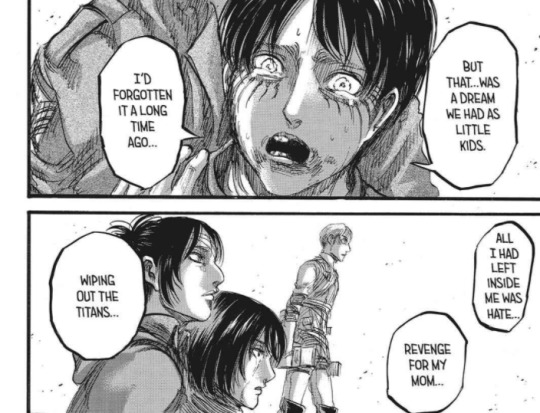
Even if it's not explicitly explained in this chapter, I'd like to think that Eren got plenty of time to reflect on this matter when he did the Rumbling, to fill the emptiness he felt after he reached what he wants wanted.
Eren wins in the end, but at what cost? This chapter is calling out his tyrannical mindset, and it's great to see him realized his error, even if it's too late for him to go back.
Maybe this is what Isayama decided to focus on the last chapter, even if it's rushed. Maybe he (or his editor, idk) wanted the ending to focus on the protagonist's story about humans vs titans. The way Eren is so determined to wipe it out from this world, no matter how messed up his method, no matter how much he suffers, it doesn't matter if it's predestined or not. Because "freedom" is what he seeks ever since he was born. Because Eldia, every person deserves to be born in this world. Yes, every person, including everyone he killed. He knew the gravity of his action and choose to accept his death. Maybe it's the reason why Isayama doesn't delve into the aftermath of genocide further.
He wants the ending to be about Eren Yeager, The Attack Titan's journey about Attack. On. Titan.
#eren's character writing is still great in my eyes#or am i just too blind?#shingeki no kyojin#snk#snk spoilers#snk 139#attack on titan#aot#aot 139#aot spoilers#eren yeager#eren jaeger#snk meta#snk analyses
83 notes
·
View notes
Photo
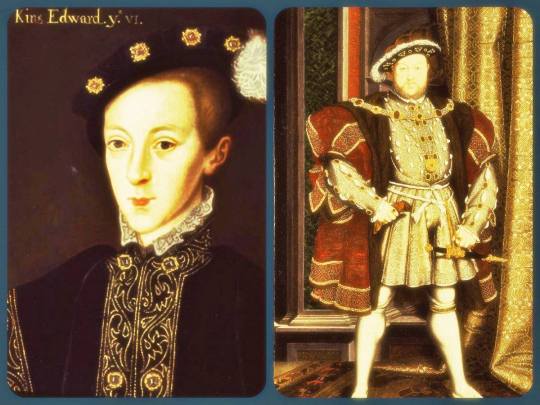
First Protestant King of England, Henry VIII or Edward VI? (And why Edward VI's reign was no less important than his father's)
It is important to dispell myths about the most popular English dynasty, so I decided to briefly take on this topic. A common misconception until recent decades is that Henry VIII was the first Protestant King. In reality, it was his son who was the first true Protestant King of England. I’ve written about this before on my blog, building upon the research by great scholars like Chris Skidmore, Loach, and the short introduction to his reign by Kyra Cornelius Kramer. Besides taking after his father in intellect, Edward VI was fairly concerned with the state of the church of England but unlike his old man, he thought that the time had come to make it into the first true Protestant church of England, agreeing to the issuing of the book of common prayer and a revision of it two years later. Edward VI also frowned upon improper clothing. He loved to dance and watch sports, but didn’t think t0 was a good idea to indulge in these frivolities since the Evangelicals believed that this was a gateway to moral decay. (Don’t you just love those who interpret the will of god so good, that they conveniently forget about the passages where their savior rails against the rich and so on?) Edward’s actions had consequences and these, like the contributions of his reign, are often brushed aside in favor of his more famous father and sisters. One of them, was a rebellion in the North and his half-sister’s resistance to his new laws that forbade people to hear the Mass and forced the new English service on everyone. Long story short … lots of people hung, punished and lots of enemies that his councilors (who as always since people couldn’t point fingers at the king unless they had a sick death wish of some sort) were blamed and were punished for during his half-sister’s reign. Some of you might be pointing out that since Henry VIII was excommunicated and labeled a heretic by most of Christendom, that technically he was a Protestant king but no, seriously, he wasn’t. Henry was, despite these labels, still a practicing Catholic. He agreed to Gardiner’s articles of faith that criticized the church and validated his claim as supreme head of the Anglican Church, and God’s representative on Earth, and surrounded himself by obvious Reformists, but other than that, he forcefully kept everyone in line. Catholics who practiced the Mass or adhered to his new rules while still being loyal to their beliefs were tolerated, but if they pulled a ‘Thomas More’ where they denied the king’s supremacy or insulted one of his beloved wives (before he got tired of them, that is) then yes, off to the block with them!
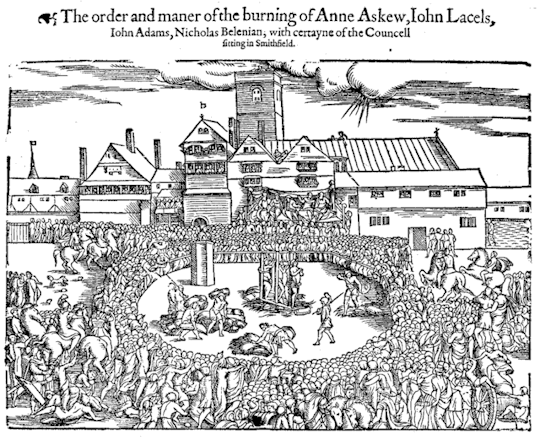
As for Protestants … Ever heard of Anne Askew? She defended Henry’s actions, she thought he was some kind of Moses as his last wife -Kathryn Parr whom she was closely associated with- would paint him as in her two books (primarily in ‘Lamentations of a Sinner’) and then she defied her husband and Henry’s establishment, pushing for a more Evangelist agenda, and what happened? Oh nothing big … she just got tortured and then burned. As long as you played Henry’s sycophant you were fine. There is also a spiritual aspect that ties into his megalomania. As Henry became more obsessed with securing his dynasty, his focus on spiritual matters also grew. By the end of his reign, nobody could predict what the king would say or how he would act so everyone walked a fine line when they discussed important subjects. Kathryn Parr is one of them who learned this lesson early on during their marriage. If it weren’t for gentleness, and the friendship she established among prominent ladies in her household, her accusers would’ve succeeded in convincing Henry VIII that she was a heretic. She would’ve had a sham trial like Anne Boleyn and then beheaded or worse, burned like Anne Aske. Luckily for Kathryn Parr, she was one step ahead of them. Humbling herself before her lord and husband, she told him that she never intended to change his religious views but just challenged him as people did at the beginning of his reign, so he could stir her towards the right path since she was a woman and these things were too complicated for her to fathom, let alone choose on her own. She lived and continued to be a major influence on future Protestant leaders, such as Jane Grey, Elizabeth I and of course, Edward VI.
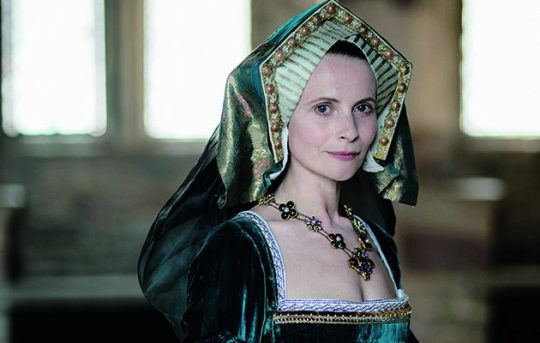
Edward VI was greatly influenced by his beloved stepmother’s religiosity and mourned her deeply. He referred to her as his mother. Kathryn encouraged his passion for books and aided his Protestant tutors in stirring him towards their faith, ensuring that he’d become the king they’d all be waiting for, that would transform England into a fully Protestant nation.
It was Edward who began to force religious codes on his people in a way that hadn’t been done before. His father cracked on religious houses on the basis of cleansing them from corruption and because of their disloyalty, and open defiance against his supremacy; but Edward made things worse. The monasteries that were sold to his father’s noblemen left many people begging on the streets while forcing others to adapt to their new environment. When people could no longer handle it, they rose up in open rebellion and like in his father’s time, these were brutally squashed. But here is where it gets interesting … Whereas Henry VIII is blamed for all the evils of his reign, Edward VI is not and the reason for this? He was a kid, don’t be so mean. Leave the poor tot alone. Fact: Edward VI died at the age of fifteen and by renaissance standards, he was not a little boy anymore. Even if he hadn’t come of age, he was not an innocent boy anymore who was oblivious to the world around him. In fact. When Edward VI found out that his uncle had been executed, he was like ‘meh … okay’. And sure, Thomas Seymour was a brash individual who thought he could get away with everything but even after he tried to kidnap his nephew, to act in such a manner and for an uncle who was married to your favorite stepmother and someone you claimed to be your favorite relative, that’s pretty cold. But it gets better. After Edward VI finally got rid of his tedious uncle and his irritating set of rules, Edward wrote in his diary (showing no emotion at all) that the former lord Protector died and that was that. Getting rid of Edward Seymour probably made the little critter sigh in relief because out of all his uncles, the Lord Protector was the one who always reminded him of his duties and responsibilities, not to mention all those rules and not letting him be king! How unfair! And then there was also that issue about the rebellions. Edward VI saw these people as traitors and agreed with Northumberland that they should be dealt with immediately but his uncle didn’t think that was wise, which was why people called him the ‘good Duke’ because they saw him as a friend of the people. Now that he was out of the way, his kingdom would not have to suffer any more dissenting voices, nor any threats of isolation or future skirmishes with Scotland. Edward VI was fully committed to the Protestant cause but convinced by Northumberland, he realized that he would not go far if he did not have any allies. And the whole campaign in Scotland had gone awfully wrong and with Mary, Queen of Scots in France, the only way to neutralize that threat was making an alliance with that country, betrothing him to Henri II and Catherine de Medici’s daughter, Elizabeth Valois. Sadly, Edward VI did not live to marry her or do more for the Evangelicals. He died and before he did, he wrote a paper called “my device for the succession” which became the basis to disinherit his sisters in favor of their cousin, Jane Grey. That opened a can of worms that could have easily escalated into another civil war like the wars of the roses but thankfully for everyone involved it didn’t and his sister won her crown fair and square. But as with every Tudor, once her sister became Queen, she began to make good use of the propaganda machine to portray her sibling as a puppet of Northumberland and other evil lords who had corrupted him and turned him against her. Why was this done? Same reason why people who rebelled against their kings often pointed their fingers at their councilors -because doing so against an anointed king meant that they were upsetting the natural order. It was only in extreme cases, when someone had enough support and belonged to a different dynasty, that they would point it directly at them. Edward belonged to the same dynasty as Mary, and a dynasty divided was bad business for everyone, especially for the first Queen Regnant of England who had inherited a divided country.
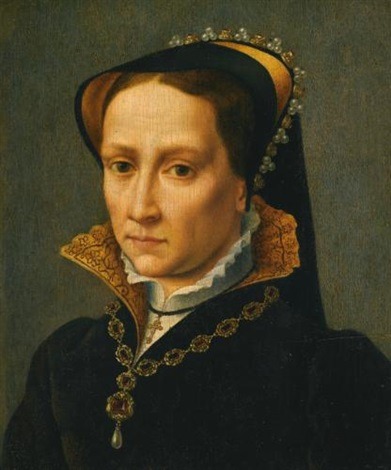
Mary I also did something else and that was appropriating some of Edward VI’s religious achievements in an effort to make Catholicism appealing to those who were still unsure whether or not they wanted to return to the church or side with the various groups within the Protestant movement. Sections from the book of the common prayer were added to a new set of prayers in Latin and English, and adapted in a way that didn’t contradict church doctrine. During his reign, Edward encouraged many poets and artists to express themselves. These would reenact passages from the bible, or create allegorical paintings that depicted Edward as England’s messiah, and all those who followed him as true Christians as opposed to the decadent Catholics who were portrayed as heathens.

Edward’s religious reformation became the basis for Elizabeth I’s reign who continued with many of these reforms. Although she did not go as far as Edward or his chosen heiress, Jane Grey, would have liked. Elizabeth I was far more pragmatic, recognizing that if she wanted to rule over a divided country she had to maintain some of the older traditions or else, she’d risk losing everything she had. Unlike her siblings, Elizabeth I wasn’t thought of as legitimate by many of her Christian peers. Ideological purity was a luxury that she couldn’t afford and in any case, she did not want because many Evangelicals didn’t like the idea of the supremacy of kings (or queens). Nevertheless, Elizabeth I built her religious establishment upon her brother’s by issuing a new revision of the book of common prayer and encouraging artists and poets to create works that extolled the Anglican Church and the Tudor Dynasty.
54 notes
·
View notes
Text
In Defense of Calia: On the Topic of Misogyny and the Criticism of the Forsaken Double Standard
So I like to browse Twitter a lot, mainly for the art but mostly just to kill time. But I also follow people and websites, and one of those happens to be Wowhead. A couple days ago there was an article documenting Calia’s appearance within the Horde Council in the Shadowlands pre-patch, to which she would voice her opinion on the state of the Horde as well as the uncertain future that Azeroth now faces with the breaking of the Helm of Domination and return of the Scourge.
The WoW community can be...very passionate, or inflammatory, depending on your point of view. The same can be said for any big fandom, in all honesty. But I’m not in a lot of fandoms, and, at least where WoW is concerned, there’s a kind of laser-guided hyperfixation in regards to the introduction and development of its characters. Old or new, the fandom watches them like a hawk, but perhaps none more vigilantly than ones that have been mentioned in-game but have not made an actual appearance itself beyond the tie-in novels.
Three of these characters are Turalyon, Alleria, and Calia. However, Turalyon and Alleria are not given this much scrutiny outside of snide quips that “Turalyon is flat and boring/he’s a zealot/he’s the embodiment of the white savior among the draenei” and “Alleria is a fucking psycho for using the Void and wanting the blood elves to return to the Alliance, she’s just like her sisters, it must run in the blood/she’s arm candy to another, rugged Alliance man” whenever the plot calls for their convenience. I would daresay these parts of the fandom would go as far to say that with their developments given within the story, it would be in Blizzard’s best interests to have never brought them so as to “preserve their memory from before the Activision merger”. On the other hand, I would like to note that this sentiment is echoed ad nauseam for practically every character in WoW...but we’ll touch on that a little bit. This piece isn’t about Turalyon and Alleria or the others.
Rather, this is about Calia, and I wanted to give voice to my opinions on the backlash - or perhaps reception would be a better word - she has been receiving. She was a character I came across reading Arthas: Rise of the Lich King and didn’t think much of afterwards; for all I knew, she had died when Lordaeron and that was the end of the Menethil bloodline. However, with her debut in Legion and unique circumstances that followed culminating from the ending of Before the Storm, as well as being tangentially tied with the Light/Void conflict that’ll come to the forefront in the future, I wanted to keep an eye on her character arc.
Needless to say, when I read the Wowhead post, the comments could basically be described like this:
The WoW Community: Gawd, Blizzard is pushing Calia so hard into the narrative. She’s just another pathetic dev’s self-insert like Nathanos is, even though we only base this off some harmless, tongue-in-cheek posts on Twitter and we need to vent our anger toward another character who clearly has too much development! She’s everywhere!
Be me, off to the side, remembering she was only present in the Priest Class Hall campaign in Legion; takes part in Before the Storm before getting axed in the Arathi Gathering and being subsequently raised into Lightly undeath by a king, her Archbishop, and a naaru that may have influenced her into going to the Gathering; only shows up very late in BfA right after Sylvanas Blasts Off Again at the end of the War Campaign to reconnect with the Proudmoores and help the kaldorei undead as well as the Forsaken Sylvanas ditches; shadows Lilian and the Horde Council in Shadows Rising, and shows up in Icecrown when the sky cracks open and Bolvar is no longer the Lich King that took up the role her brother was in.
I don’t know what popular fanfiction you folks are reading (or whatever tea you’re drinking; I’ve been looking around since the last Calia post I made and I can’t find it!), but that is not what I would call everywhere.
Look, you’re more than welcome to despise Calia as much as Nathanos over baseless claims and double standards, but let’s not pretend there are other Forsaken that’d fill the hole Sylvanas left behind. Because they can’t. They won’t be able to, because for years Sylvanas made up the core of Forsaken identity. Prior to WotLK they were a race that was reviled and ostracized by the world and looked upon with distrust by everyone including the Horde, even as Hamuul vouched for them and convinced Thrall to give them a chance despite knowing full well how cruel and selfish they could be. Their sole purpose was to exact revenge on the man who took everything away from them, destroyed their lives, and raised them into his service against their will.
And even when Arthas was defeated, they had no other purpose but to conquer Lordaeron, find a way to reproduce their numbers, and reaffirm their loyalty to the Horde - because where the hell else are they going to go? Because even if some Forsaken disagree with Sylvanas’s strict institutions regarding the acceptance of their undeath and the complete rejection of their former, mortal lives, not everyone in the Alliance is going to welcome them with open arms; not everyone is an Anduin or a Jaina. You see this with Genn, who despite accepting that not every Forsaken is bad still holds them in contempt, and with Alleria, who, after spending a thousand years in the Twisting Nether fighting the Burning Legion and thus being removed from the changes that occurred on Azeroth, is justifiably concerned that they are no longer the same person in undeath as they were in life. You see this in the way that some families spurn their loved ones when the Gathering takes place.
So while it’s true that you can say Calia doesn’t have what it takes to be the person the Forsaken need in a post-Sylvanas Azeroth, you must also remember that of all the named Forsaken we know of only Lilian has been given due development. You can’t say the same for Belmont (a loyalist who disregarded Cromush’s warnings about using the plague in Silverpine, as well as fought a losing battle against Tyrande in Darkshore in BfA), Helcular (a presumably former Cult of the Damned affiliate who notably defended Tarren Mill during the Legion’s third incursion), Faranell (another loyalist who created the New Plague and believes Putress is behind Wrathgate, but perhaps unaware of Sylvanas’s possible involvement), and Velonara (who did not want to be want to raised but followed Sylvanas anyway until the Fourth War, eventually siding with the Horde Council). They are merely foot soldiers; outside of maybe Velonara they don’t have the luxury of experiencing the emotional turmoil a newly risen undead goes through the way Lilian Voss does when Thomas Zelling, dying from illness, makes a deal to be raised into undeath and help the Horde in their war if it meant protecting his family. They don’t have the luxury of watching him get executed by the Warchief’s right hand man in front of their eyes the way Lilian and every other Horde leader present did. You would not get the same weight by switching her out with any of them. You could say Lilian would make a decent successor to Sylvanas, and I would not disagree with you. However, Lilian does not have the familial connection that Calia does to Lordaeron, and while Gey’arah poses the question of leadership to her at the Horde War Campaign’s epilogue, it should be noted that Lilian believes there is “another more suited to the task”, preferring to be the hand that would comfort the Forsaken of the trauma of being raised into undeath and, as of Shadows Rising, act as their interim leader.
Then again, neither does Calia. We don’t know where she and Faol were after Lordaeron’s fall (which is one key detail I have seen people not take into account upon their criticisms of her character), but we do know that upon being asked she had refused to reassert her claim to Lordaeron. However, she has common sense enough to know that Faol was not like the other Scourge in the beginning, and later when she met with Elsie, Parqual Fintallas, and the Felstone family.
Whatever happened during that time period prior to Legion, she identifies with the Forsaken. They are, in a way, still her people, regardless of that. This is why I think she would suit the Forsaken best as their leader, not as Queen of Lordaeron that the fandom - or rather, most of the Sylvanas stans - has been so prone to parroting since her intentions to help guide the kaldorei undead and the Lordaeronian Forsaken were first revealed.
And look, I’m a Sylvanas stan, too. But it is very much apparent that Sylvanas only started the Fourth War for her own purposes, has clearly been in an alliance with the Jailer since Cataclysm (yet is hinted to not be entirely subservient to him), and even if she was doing everything up until Shadowlands as an extreme mixture of For the Greater Good and The End Justifies The Means she was still a toxic influence to the more honorable members of the Horde and to the Desolate Council. Even if her behavior were an act to conceal her true intentions, it would still not absolve her completely for all the atrocities she committed and the suffering she caused. Not even Nathanos, whom people have an obsessive, misandrist fixation of being based on someone who’s not despite being in the game for fifteen years prior to that dev joining Blizzard, would not be the best replacement for Sylvanas. Nathanos - the same man who loves Sylvanas so much he would do anything for her even as he pushes aside the brief moments where he hesitates following her orders and expresses shock at her actions - would not have either the Horde’s or the Forsaken’s best interests at heart, for his belongs only to her. After all, you can’t “redeem” a character if the character himself does not regret what they have done and does not want to change for the better.
Which is another thing I have noticed, in the years I have been in the WoW fandom: the concept of “redemption” in the wake of “character assassination” in the wake of events that caused by said characters that are often deemed questionable, which is what I believe makes people conclude the causation to be a source of “bad writing”. This also ties to what I also believe to be the misogynistic undertones the fandom expresses, simply because the events caused by questionable if dubious methods are done by a woman and not a man, which therefore leads to the notion that Blizzard “hates women”. This gives me the impression that these voices would prefer to have Blizzard write their women as someone who are pure and strong and multi-faceted but the minute she performs an action that not everyone is on board with then she is either considered “ruined” or a “dreadlord”, which is merely a cop-out excuse that you only see applied to the female characters (e.g. Jaina) but not the male characters; those men are simply called “evil” or “genocidal”, whether or not they are rightfully so. Then again, men are also considered “ruined” if they are so much as given the spotlight (e.g. Lor’themar in Nazjatar, Baine throughout BfA), but they are nowhere near under as much scrutiny than the women are (unless it’s Garrosh, then you’re going to have to put up with the “Garrosh Did Nothing Wrong” memes). Which leads us back to the hypocrisy the fandom shows towards Calia, a character to whom people call a “Mary Sue” but at the same time an “abomination” who is going to be “Queen of the Forsaken” that is being pushed by Blizzard to make the playerbase hate Sylvanas even more.
And from what we know about Calia, she is neither seeking to become “Queen of the Forsaken” for the foreseeable future nor a “Mary Sue” (if she were, she would’ve succeeded in making all the Forsaken defect to the Alliance and, you know, not die). Perhaps she is made to question if she is capable of providing for the Forsaken (for some, that is, for it was confirmed by Blizzard that not all Forsaken are willing to be lead by another Menethil, and one who had been missing and presumed dead for years at that). Perhaps she is an anomaly, but she is by no means perfection incarnate the fanbase paints her to be.
TLDR Calia Menethil is a character that deserves a chance at getting her character arc and development, and should be judged accordingly instead of jumping the gun.
16 notes
·
View notes
Photo
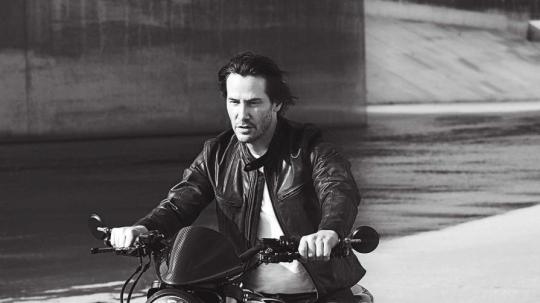
Keanu Reeves opens up about a lifetime of playing iconic badasses, why he must eat steak before a big fight scene, and how he's managed to stay fit into his 50s
The always-guarded actor talks about his life, his past hits, his latest project ('John Wick: Chapter 2'), and how he's still ready to kick lots of ass.
by David Katz
February 10, 2017 3.32pm
Do you like action movies?” asks Keanu Reeves, unable to contain his excitement, as he leads me on a tour of 87Eleven Action Design, a cavernous gym, production company, and choreography studio located in an industrial park near LAX that is arguably the white-hot center of modern movie fighting. “It’s like a training school, a dojo for stunts,” he says, clearly pumped to be back at what was his “second home” while he prepped for the cult action movie John Wick (2014) and the next installment, John Wick: Chapter 2, in theaters now.
Reeves’ youthful enthusiasm is a little surprising, and not because the guy is officially 52 years old. (In his mod black jacket emblazoned with “Arch”—the motorcycle company he co-founded—he doesn’t look anywhere near that age.) And it isn’t because I expected Reeves to be a jerk, either. The truth is, I had no idea what to expect, because Keanu Reeves—a star for more than a quarter century, a guy whose films have amassed nearly $2 billion at the box office—has achieved something miraculous in today’s celebrity-obsessed world: He’s preserved some mystery about himself.
“I’m not looking for a red carpet to walk, and I’m not trying to have a celebrity footprint,” he says when I mention that it’s rare to see his name flashing across TMZ, and it’s even rarer for him to sit for an extended interview like this one. And while so many actors in Hollywood are focused on building their online “brands,” Reeves seems totally fine with letting the world of social media entirely pass him by. “I can see the appeal—it’s just not to my taste,” he says.
Before I meet him, I know a few basic facts: He’s unmarried, with no kids. (“I’m an unsuccessful representation of the species,” he jokes.) Also, I know that much of my impression of Reeves is formed by his work, notably his tendency to play stoic heroes—like the Zen-like savior, Neo, in the record-shattering The Matrix trilogy—so I half expect to encounter a quiet, impenetrable monk.
Instead, Reeves is more like a high-energy action-movie fanboy, rattling off some of the films that 87Eleven co-founders—veteran stuntmen David Leitch and Chad Staheleski—have choreographed: The Bourne Legacy, Fight Club, and, of course, The Matrix, on which Staheleski served as Reeves’ stunt double. Fifteen years after that movie’s smash success, he knew those guys aspired to direct, and Reeves brought them a project he was developing about a retired assassin who goes on a bloody revenge spree after a group of thugs off his dog.
Reeves would star, and they would direct.
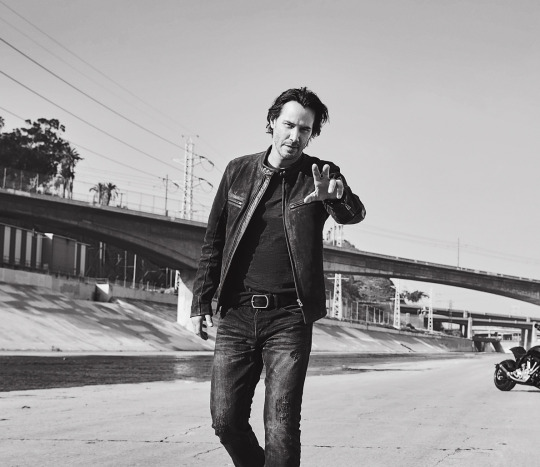
“Just good clean fun,” he says of the movie, with its super-stylized violence, insane body count, and wry tone. (“It is funny,” Reeves admits. “But not ha-ha funny.”) It was an odds-defying hit: Made on a small, $20 million budget, it grossed $86 million worldwide, cementing Reeves’ status, once again, as one of Hollywood’s most appealing and bankable action heroes.
In 2017, it’s easy to forget that Reeves is an unlikely badass. He first hit it big in comedy, in 1989, with the ridiculous Bill & Ted’s Excellent Adventure, about two bodacious, underachieving California teenagers traveling through time in a phone booth. Not only was Bill & Ted Reeves’ first (but hardly last) surprise hit, earning a sequel, but nearly 30 years later people still talk about a reunion—an effort Reeves supports. “It would be absolutely fantastic and ridiculous to play those roles again,” he says. “Bill and Ted in their 50s?! Excellent. Bodacious!” (Yes, a writer is currently working on a script.)
For his sudden transformation into ass-kicking leading man, however, Reeves credits director Kathryn Bigelow, now known for war movies The Hurt Locker (2008) and Zero Dark Thirty (2013), but then starting out with Point Break, in 1991. Bigelow cast a 26-year-old Reeves as an FBI agent embedded with a band of bank-robbing surfers led by Patrick Swayze. It was another ridiculous premise, another huge hit for Reeves. “It was pulpy, it had a real energy,” says Reeves (who hasn’t seen 2015’s failed remake). “I’ve met people over the years who said, ‘I started skydiving because of that movie,’ or ‘I started surfing because of that movie.’”
“Before a fight sequence. I still eat a steak. It started on ‘The Matrix’. It’s totally psychological.”
Reeves jumped from a plane once during production to get a taste of what it’s like, but he says that his co-star, Swayze, really caught the bug. “I think he had 30 jumps while we were filming,” he says. “The insurance company was, like, no. Eventually, he got a cease-and-desist from the production company.”
Whether it was because of the surfing, the long hair, or the laid-back delivery, Point Break stereotyped Reeves as the ultimate SoCal underdog—an image only bolstered by the blockbuster Los Angeles freeway thriller, Speed (1994)—which still persists today.
The irony is that Reeves isn’t a native Californian, or even an American. He was born in Beirut, Lebanon, to a British mother and Chinese-Hawaiian father (his name means “cool breeze” in Hawaiian) and spent his formative years in Toronto with his costume designer mom and her eclectic group of friends, including singer Alice Cooper. Reeves still identifies as Canadian, even if he’s lived in L.A. since he was 20 years old.
“Those were my formative years, from like, 7 years old on,” he says. He explains his attachment to his home country as “like the imprimatur of youth, that early sapling that grows into a tree.”
As he leads me up the stairs to 87Eleven’s annex, we get a bird’s-eye view of the place. Most of the floor space is taken up by a huge blue mat overhung by cables used for “wire work,” the suspended choreography that allows actors to dodge bullets midair and pull off impossibly high roundhouses. Today it’s being used by a stunt team from Logan, Hugh Jackman’s final Wolverine film, and Reeves looks on with jealousy. “I always want to work out here,” he says, “just come in and get some more training.”
For Wick, that meant he had to learn an entirely new discipline: judo. “I had a little experience in movie fighting,” he says, with typical (and sincere) modesty. “But I’d never done judo.”
He says the form is tricky to fake onscreen because, unlike throwing punches, “you really gotta throw someone.”
Reeves adopted a former MMA fighter named Eric Brown as his sensei. “At the beginning, I didn’t even know where to put my feet,” he says. “So it was a lot of me learning the basics.”
By the time he flew to New York and Rome to shoot John Wick: Chapter 2, which expands the mythology behind Wick’s order of assassins and reunites Reeves with The Matrix co-star Laurence Fishburne, he was a bona fide judo expert. “Keanu is the most persistent, non-giving-up guy you’ll ever meet,” says Stahelski. “He doesn’t want to act out the part. He wants to be the part.”
Reeves loves pushing himself during his action sequences, though he rejects the word “stunt” for anything he does himself. “There’s an incredible stuntman who doubles John Wick,” he says. “They hit him with a car. He’s standing there, and they hit him—that’s a stunt. Me? I’ll shoot some guns, flip some people—and that’s action. So, yeah, I do as much action as I possibly can, because I love it—and I love the opportunity to bring the audience along.
Which is one of the reasons why Reeves never enjoys stepping aside for the sake of his safety. “I hate that, it’s always a drag,” he says. “I want to be able to do everything. Since The Matrix, I’ve used this term, ‘superperfect.’ As in, ‘Can we get it superperfect?’” On a huge-budget studio movie that can afford infinite takes, that means doing it until it’s right. On a leaner film like Wick, where fights that could have been allotted five days might get two, it means no room for error. “But that’s part of what makes [a great action film] a pressure cooker,” he says. “It’s the intensity of just trying to do the best you can in the circumstances that you have.”
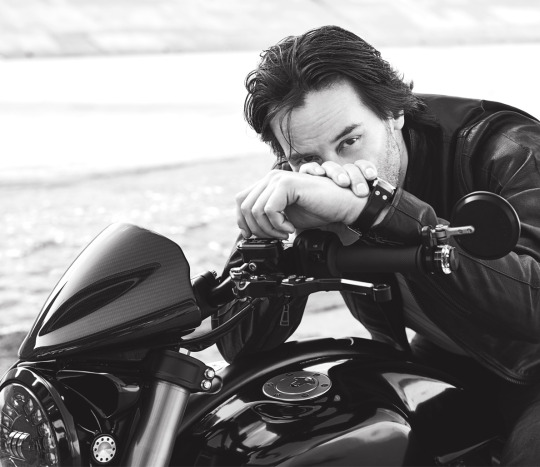
Looking back, he credits Point Break for making him think about his body more. “It was life-changing for me,” he says. “It introduced me to fitness and training.” He began working with Denise Snyder, who has remained his main fitness guru for more than 25 years, and has overseen his body throughout his career.
“He can get huge,” says Snyder. “That worked for Speed. But usually I don’t think for him massiveness works. On John Wick, it’s about his presence, and it can’t come from size. It’s got to come from structure. It’s really about pulling his shoulders back.”
Reeves says that meant not having “huge traps.” “I wanted to have that back,” he says, “to look like if I grabbed you, you were in my world now.”
Reeves isn’t slowing down his exercise regimen these days, though he admits that the biggest difference between playing an action hero at 52 versus 25 is the wear and tear on the knees. “I can’t do stairs as fast,” he says. “But if you say ‘action,’ I’ll go.” His recovery is a little slower, but his endurance is solid. His training diet is still simple. “Low sodium, low fat, and the night before a big fight sequence, I still eat a steak. It started on The Matrix. I was like, ‘Gotta go eat a steak, Carrie-Anne [Moss, his co-star].’ It’s totally psychological.” He prefers a nice New York cut, with a little fat on it.
With Wick behind him, Reeves says he has some “civilian living” ahead of him before he chooses his next project. During these periods, he takes it easy. “Steak. Red wine. A nice single malt with a big ice cube. Ride a motorcycle.”
Reeves plans to keep the great action movies coming. “You just gotta find the right one,” he says. “You can’t just do it to do it. Unless you need the dough, which is a good enough reason.”
Of course, Reeves, who allegedly took in millions for his work on The Matrix movies alone, doesn’t need the dough. “Well, I do,” he insists, declining to elaborate too much. “It’s a long story that I don’t want to share with you.” Though later he offers a clue: “When you’re friends with someone, you want to help them, you sign something that turns into something else, and that comes back to haunt you.” Still, he says, money is a bad way to make career choices, and his résumé bears that out. (See: 1991’s My Own Private Idaho, 1993’s Little Buddha, and 2012’s Side by Side, a documentary he produced about Hollywood’s conversion from traditional film to digital.) He’s also the guy who started a motorcycle company five years ago.
In fact, Reeves actually showed up today on one of his bikes, a gorgeous Arch KRGT-1, what he calls a “performance cruiser.”
Arch is more than a vanity project, he says. He’s involved in every facet of the company, from design and testing to administration. The project fits perfectly into what Reeves sees as the guiding philosophy of his life: “You’re gonna die—make stuff.”
http://www.mensfitness.com/life/entertainment/keanu-reeves-opens-about-lifetime-playing-iconic-badasses-why-he-must-eat-steak
64 notes
·
View notes